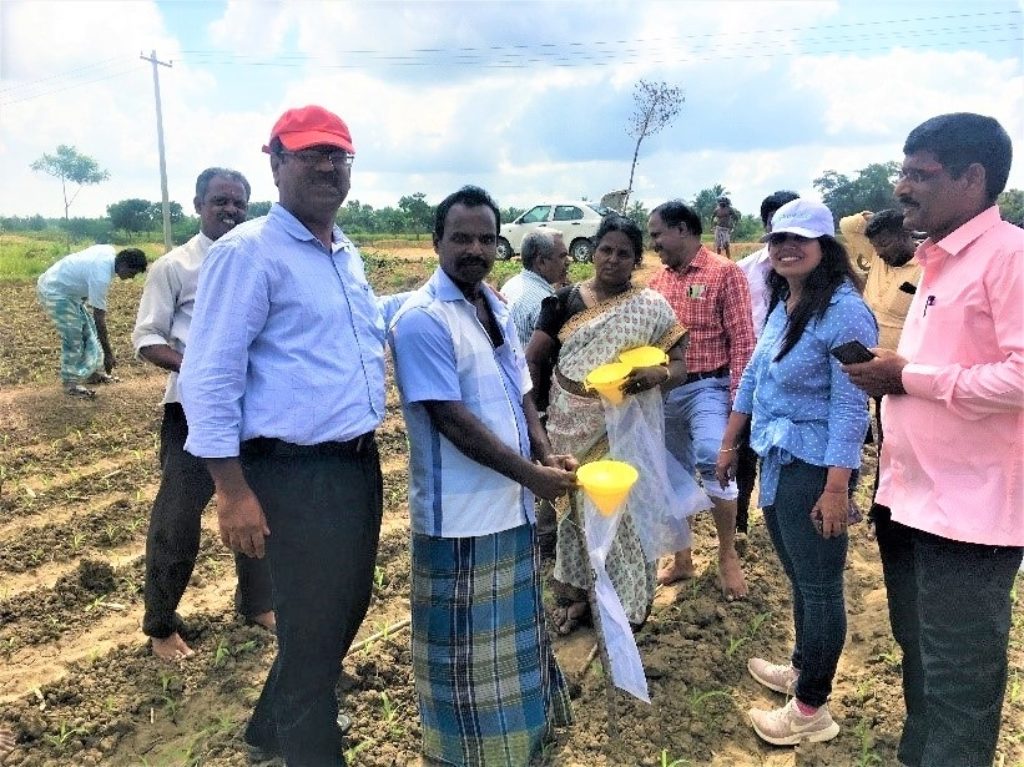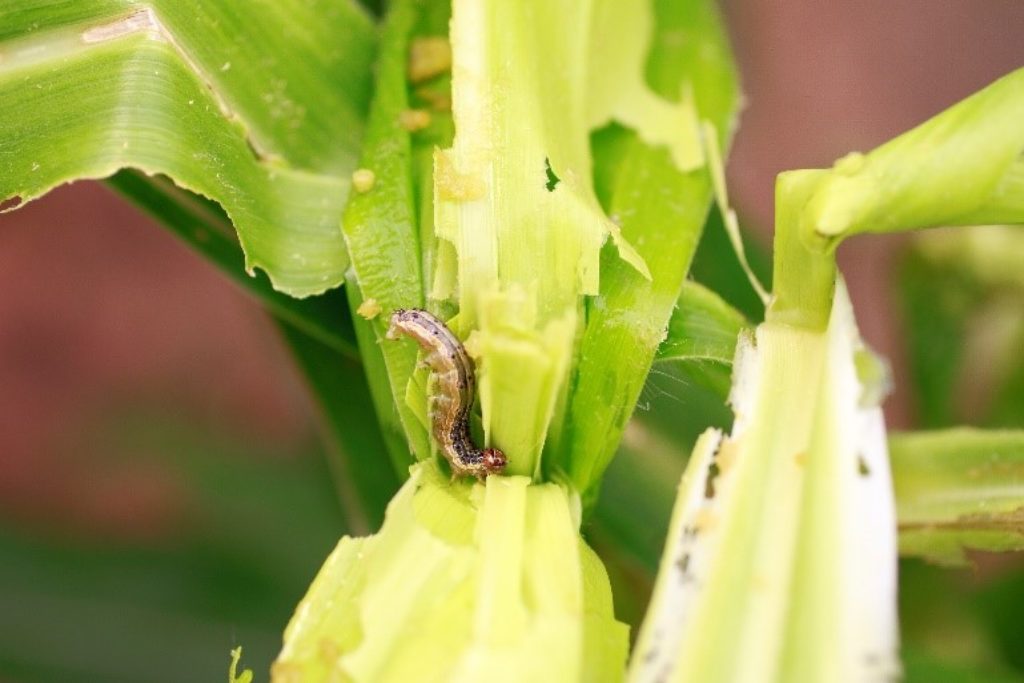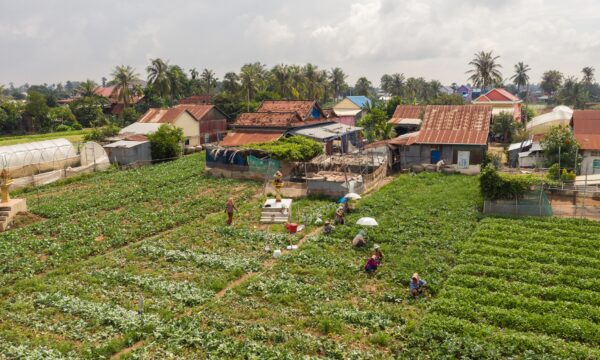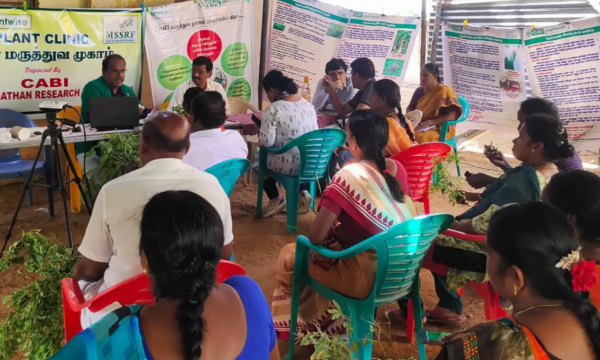
In mid-2018, presence of the highly invasive fall armyworm (S.frugiperda) was confirmed in Karnataka State, India. Since then, Plantwise and partners have been on the ground working to create awareness among farmers and contributing to the development of safe and effective management of the pest. Under a project funded by the CABI Development Fund (CDF), CABI is working closely with ICAR-NBAIR to help with fall armyworm issues brought to light by local Plantwise plant doctors. One approach to tackling the invasive pest has been biointensive pest management which is based on an understanding of pest ecology.
A field trial on biointensive methods in the management of fall armyworm was validated in farmers’ fields in Maramadaki Village, Pudukottai District, during the first week of January 2020. The participatory trial was taken up in a one-acre plot where the maize had been planted two weeks prior. The initial sampling of the plot revealed less than 2% damage and no egg masses. The incidence level of fall armyworm was very low so a team of scientists from NBAIR, CABI, M.S. Swaminathan Research Foundation (MSSRF), and the local plant doctors decided to use a controlled release of fall armyworm pheromone developed by ICAR-NBAIR to monitor the population and implement other biointensive methods.
Taking a cue from the proverb ‘give a man a fish and you feed him for a day but teach a man to fish and you feed him for a lifetime’, mere supply and applying of inputs in the field and asking farmers to look out for results is much less motivating than training farmers to apply the technology themselves and see the results.
Trainers from MSSRF were trained to assemble and install pheromone traps in the field. They were in turn asked to train the farmers to do the same. A little ice breaking was needed first between the farmers and trainers but the farmers were quick to learn. The farmers’ confidence level was high and they were able to assemble and install the pheromone traps in maize fields themselves. This participatory approach showed maximum involvement as evidenced by the farmers marking the control trap as zero.

This training was coupled with discussions on the methods practiced so far by the farmers to contain fall armyworm. They reported that they were unaware of the presence of fall armyworm last year and they ended up suffering huge yield losses due to the invasive pest. In the current season, their knowledge was restricted to using insecticides alone and some farmers had already gone through three rounds of pesticide application.
The team briefed the farmers on the negative effects of pesticides on human health and the environment, and the resistance the pest can develop for chemical insecticides. Safer options like the use of bioagents, namely parasitoids Trichogramma and microbial entomofungal pathogens and entomopathogenic nematodes to scale down fall armyworm populations, were explained.
There was also an additional session on a participatory approach for the biointensive management of fall armyworm attended by over 60 farmers as well as scientific and extension staff. After the talk, feedback from farmers showed that they were dependent on pesticides for managing fall armyworm as they had little knowledge themselves about alternatives like the use of natural enemies (although they had heard Trichogramma was being used for sugarcane pests.) Lastly, farmers had not been aware of pheromone use until now, and in one case although a farmer received a pheromone trap from the local department, he was unable to get replacement lures.
Looking forward, other groups could also benefit from this sort of training and partners are planning to work with an all-women group in the same village; developing capacity for the whole community to fight fall armyworm.
About the author
Dr. Kesavan Subaharan is a principal scientist at ICAR-NBAIR and has worked in chemical ecology for more than a decade. His interest is to integrate different scientific disciplines to give optimum, cost-effective products to farmers.
For more information on fall armyworm visit CABI’s Fall Armyworm Portal
1 Comment
Leave a Reply
Related News & Blogs
How plant clinics are strengthening crop health services in Bangladesh
When the first-ever plant clinic in Bangladesh opened in Dhaka in 2013, it initially faced a lack of interest due to its novelty and limited awareness among farmers. However, it went on to expand, providing advice to over 17,000 farmers and led to the…
2 July 2025





Pheromones you are purchasing from market or your synthesising